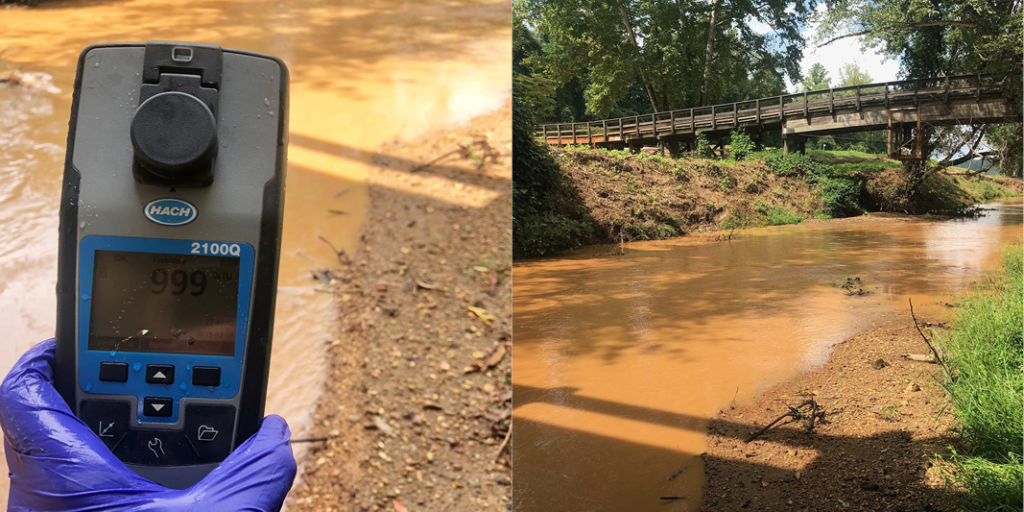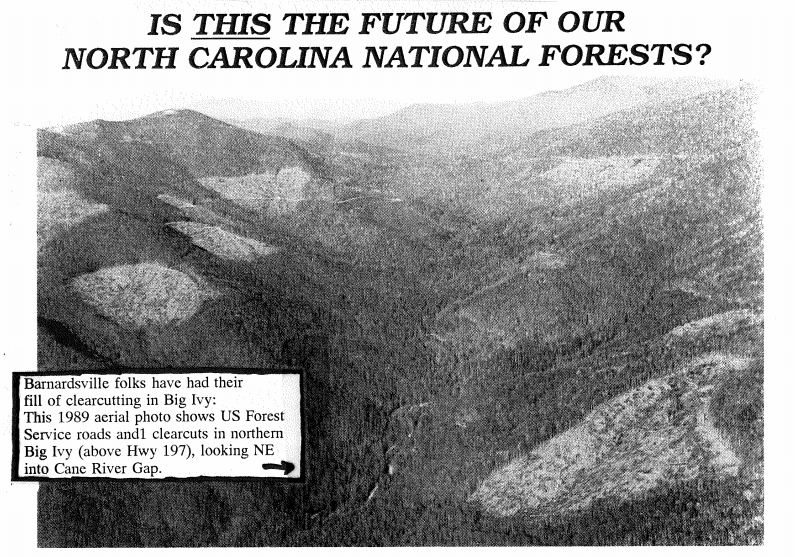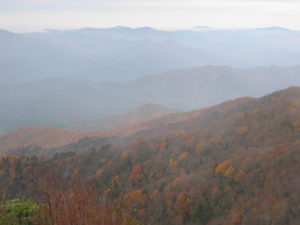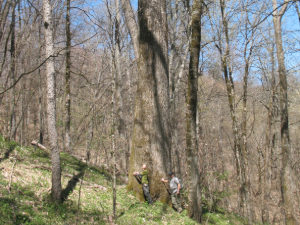
The I-26 Connector Project, 20 Years in the Making
The I-26 Connector Project, 20 Years in the Making
For two years, the Asheville Design Center opened their doors to the community every Wednesday night to explore better options for the I-26 Connector. Here, a group of ADC volunteers look at a 3-D model of the project.
When communities come together, we can move a highway.
This fall, the North Carolina Department of Transportation (NCDOT) will release the final Environmental Impact Statement (EIS) for the I-26 Connector Project – a highway expansion project through Asheville – that will reflect some major victories and improvements for city residents.
When NCDOT first proposed the Connector Project in 1989, it sparked widespread concern among Asheville residents living within its path. Typical to NCDOT projects at the time, the project catered to thru-traffic drivers and not to the needs of the people and neighborhoods of Asheville itself. If left unchallenged, it would have been overbuilt and threatened communities already harmed by previous highway projects.
In 2000, the community started organizing in earnest to oppose to the plan. MountainTrue (then the Western North Carolina Alliance) co-chaired the Community Coordinating Committee (CCC), which issued a report recommending nine key design goals that the final project should achieve. These included separation of local and interstate traffic, matching the scale of project to the character of community, reunification and connectivity of community and minimization of neighborhood and local business impacts. These goals have continued to be the foundation for advocacy by residents and the City of Asheville ever since.
Then in 2006, the Asheville section of the American Institute of Architects (AIA) secured grant funding to form the Asheville Design Center. This allowed the Center to begin holding community meetings, workshops and design charrettes to create a community-authored design for I-26 that met the CCC’s goals. Eventually called Alternative 4B, this design was finished in 2007 and received broad community support, including funding from the City of Asheville and Buncombe County for an engineering study to prove that it was feasible.


In 2009, NCDOT committed to include a revised version of the community-designed Alternative 4B in the EIS – the first time anywhere in the country that a community-developed design became a viable alternative for a major highway project.
Also in 2009, a coalition of representatives from the Asheville neighborhoods that stood to be most impacted by the new highway – including West Asheville, Burton Street, WECAN, Emma and Montford – formed the I-26 ConnectUs Project. MountainTrue served as the convener and coordinator, using its expertise to amplify neighborhood concerns with NCDOT. The ConnectUs Project also adopted the CCC report’s goals as the basis for its advocacy.
In 2013, the I-26 Working Group came together and was made up of elected City and County officials, a representative of the business community, and MountainTrue as a representative of the ConnectUs Project. The Working Group secured consensus on several important issues, including that NCDOT should analyze the possibility of having fewer lanes through West Asheville and honor the City’s vision for the Jeff Bowen Bridge to become an urban boulevard. This effort also resulted in NCDOT commiting to build a multi-use path from Haywood Road in West Asheville to and across the Bowen Bridge – a significant victory for community connectivity.
When NCDOT issued a revised Draft EIS in 2015, Asheville City Council passed a resolution in support of the community’s vision and formed a working group with NCDOT to hammer out the remaining issues. In 2016, NCDOT selected Alt. 4B as the preferred alternative for the project and, in 2017, NCDOT agreed that the highway in West Asheville would be six rather than eight lanes. These decisions represent other major victories for citizen advocacy, and the working group collaboration has resulted in an improved project design on several other fronts.
Too often NCDOT has made its decisions without significant involvement from or engagement with local communities. In the years since, we’ve seen a growing shift in their approach in other areas of the state.
Good transportation planning considers a community’s unique context and engages residents from the beginning. It should protect our most vulnerable neighborhoods, ecologically sensitive areas, and mountain views, while minimizing the impacts on homes, businesses and special community assets. Good transportation planning can improve quality of life, increase transportation options, make our communities healthier and reduce pollution.
MountainTrue and our Asheville Design Center are using this model of community advocacy developed for the I-26 Connector project in other WNC communities, most notably in Sylva to develop community-designed alternatives for NC-107.


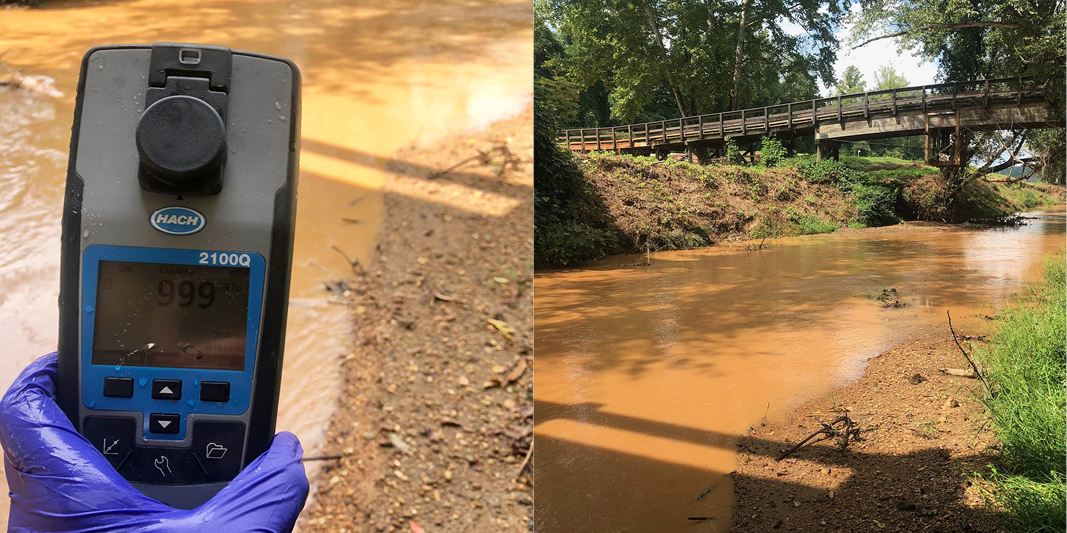

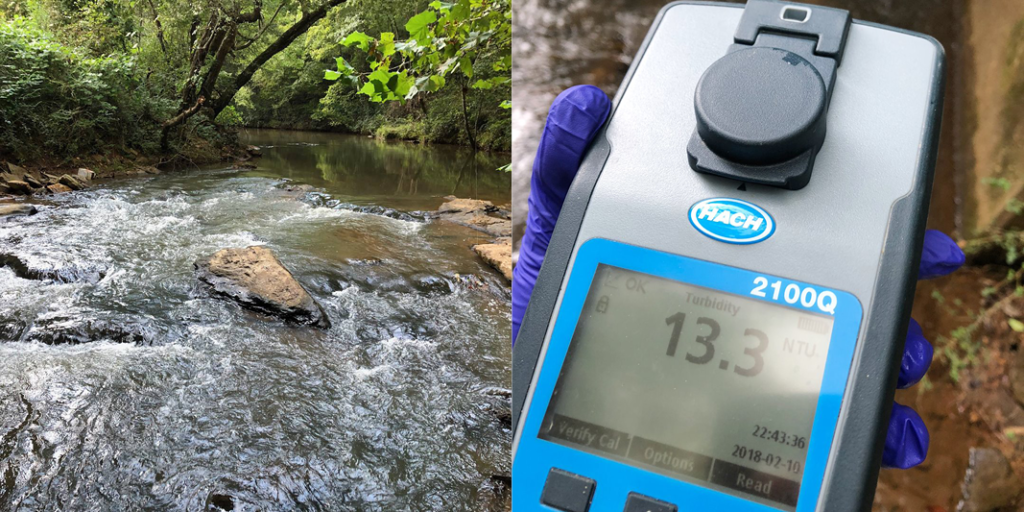 Upstream from the Wold Equestrian Center, Gray’s turbidity meter read a relatively clean 13.3 NTU or Nephelometric Turbidity Units – the measure of the concentration of suspended sediment in liquid. The North Carolina sediment standard for water quality is 50 NTU.
Upstream from the Wold Equestrian Center, Gray’s turbidity meter read a relatively clean 13.3 NTU or Nephelometric Turbidity Units – the measure of the concentration of suspended sediment in liquid. The North Carolina sediment standard for water quality is 50 NTU.